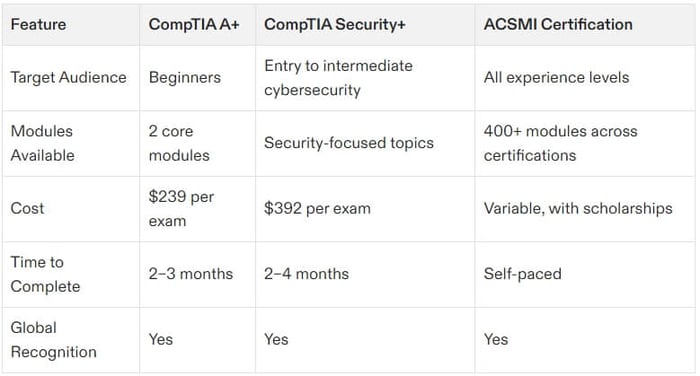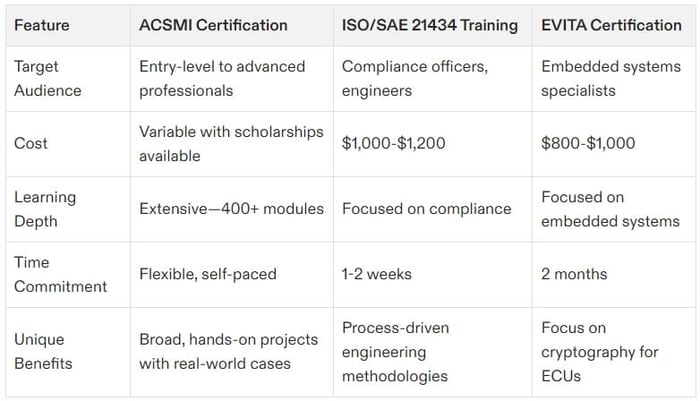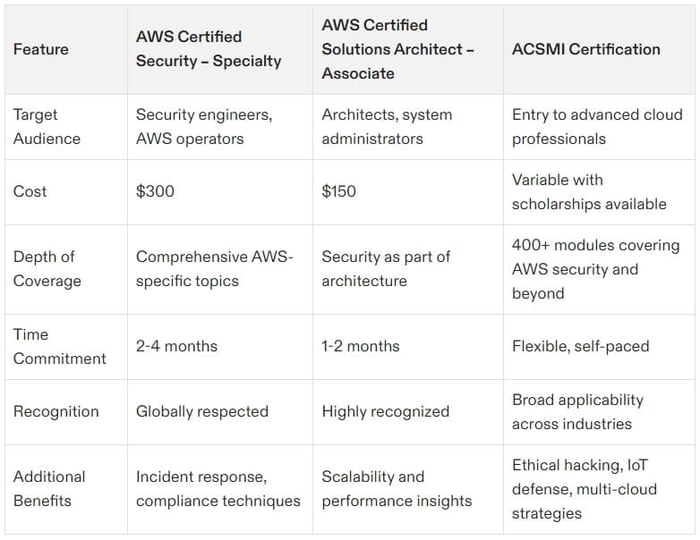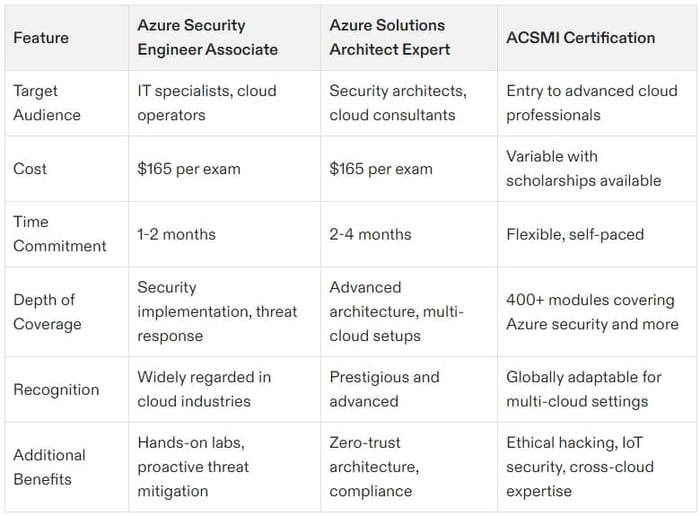Table of Contents
When stepping into the world of cybersecurity, one certification consistently stands out as a gateway to success—the cybersecurity certification A+. Widely recognized as a foundational credential, A+ is one of the best entry-level certifications for professionals beginning their information technology (IT) or cybersecurity career. Provided by CompTIA, this certification is an industry-standard that validates your understanding of essential IT and cybersecurity concepts.
The demand for cybersecurity professionals is growing rapidly in response to increasing cyber threats across industries. Whether you're a recent graduate, career changer, or IT technician, earning the cybersecurity certification A+ sets the stage for a successful career in protecting digital infrastructure.
Why Choose Cybersecurity Certification A+?
The cybersecurity certification A+ is tailored for newcomers to IT and cybersecurity. Its focus on core technical skills and problem-solving makes it a favorite choice for beginners looking to understand industry standards. Here's why this certification is crucial.
1. A Foundational Credential
Cybersecurity certification A+ serves as a stepping stone toward specialized certifications like Network+, Security+, and CISSP. It establishes your ability to troubleshoot, configure, and manage hardware and software systems—fundamental skills needed in cybersecurity.
2. Entry to a Growing Industry
Cybercrime is one of the biggest challenges for organizations, with damages expected to hit $10 trillion annually by 2025. This growth has fueled the demand for skilled cybersecurity experts, and the A+ provides a strong start in this booming field.
3. Vendor-Neutral Training
Unlike platform-specific certifications, A+ teaches principles applicable across different systems, giving you flexibility throughout your career.
4. Better Hiring Prospects
Employers value A+ certification because it demonstrates that candidates possess employable skills, such as configuring systems securely and understanding network vulnerabilities.
Start expanding your knowledge with ACSMI’s detailed cybersecurity certification A+ modules and fast-track your learning path.
Key Areas Covered in Cybersecurity Certification A+
The A+ certification exam tests your understanding in several critical domains. For those pursuing cybersecurity, here are the areas to pay close attention to.
1. Security Fundamentals
From endpoint controls to cryptographic measures, A+ introduces key security concepts to defend networks against common threats.
2. Troubleshooting Malware and Vulnerabilities
Learn how to detect malware, troubleshoot compromised systems, and implement recovery protocols effectively.
3. Network and Devices Security
Understand how to secure devices, smart systems, and their interconnection within a network, paving the way for a deeper study of cybersecurity.
4. Configuration of Operating Systems
A+ training emphasizes the secure configuration of Windows, Linux, and macOS environments—essential knowledge for every cybersecurity analyst.
Top Benefits of Cybersecurity Certification A+
Earning the cybersecurity certification A+ brings numerous rewards, especially for beginners establishing themselves in cybersecurity.
1. Industry Recognition
A+ is often listed as a preferred qualification in job postings, making your resume stand out from the competition.
2. Access to Entry-Level Roles
From IT Support Technician to Junior Security Analyst, A+ certification opens doors to foundational roles that build practical experience.
3. Seamless Career Progression
Once certified, you’re positioned to pursue advanced industry certifications like Security+ or Network+. A+ ensures you’ve mastered the core skills required for future growth.
4. Global Acceptance
CompTIA’s A+ is a globally recognized, vendor-neutral certification, which means it’s trusted by companies worldwide.
5. Hands-On, Real-World Training
Practical training included in A+ ensures you’re ready for real-world challenges, whether it’s identifying cyber risks or securing enterprise data.
Discover how ACSMI’s comprehensive modules build upon the fundamentals of A+ and accelerate your expertise further.
How to Get Started with Cybersecurity Certification A+
1. Choose Trusted Prep Resources
CompTIA offers official training programs, but additional platforms like ACSMI provide a more in-depth and customizable learning experience.
2. Build a Study Schedule
Allocate 2–3 months of preparation, focusing on two major exams—Core 1 (220-1101) and Core 2 (220-1102). Practice mock exams to gauge your readiness.
3. Focus on Skill Applications
Concentrate on applying what you learn through virtual labs, such as securing a Wi-Fi router or applying firewall rules. These activities ensure you don’t just memorize but internalize key concepts.
Advanced Certifications to Consider After A+
Once you’ve earned your cybersecurity certification A+, it's time to plan your next steps in the cybersecurity career path. The A+ credential is foundational, and advancing to more specialized certifications can dramatically increase your employment opportunities and earning potential. Here’s what you should consider next for advancing your expertise.
1. Network+ Certification
For professionals interested in understanding the architecture of secure networks, the CompTIA Network+ is a great starting point. This certification builds on the fundamentals of A+, teaching you how to design, maintain, and troubleshoot enterprise networks. Careers that rely on Network+ include Network Administrator or Network Security Technician.
2. Security+ Certification
Security+ is widely considered one of the best baseline credentials for anyone pursuing a career in cybersecurity. It introduces in-depth topics like threat analysis, identity management, and risk mitigation strategies. This certification can help you land intermediate roles such as Security Analyst, SOC Analyst, or Incident Responder.
3. Certified Ethical Hacker (CEH)
For those who aim to learn offensive rather than defensive strategies in cybersecurity, the CEH certification is a solid choice. Certified Ethical Hackers work to identify vulnerabilities before they fall into the hands of malicious actors, paving the way for roles such as Penetration Tester or Red Team Operator.
4. ACSMI Certification
ACSMI (Advanced Cyber Security Mastery Institute) offers a comprehensive program that builds on your A+ foundation. With over 400+ modules, their certification provides hands-on experience and advanced skills such as ethical hacking, threat detection, cloud security, and IoT defense strategies. Whether you're looking to specialize in cloud technologies, ethical hacking, or IT governance, ACSMI’s self-paced, industry-aligned training ensures you're prepared for any challenge.
To empower your career, you can explore ACSMI’s extensive cybersecurity certification A+ advancement modules and more here.
5. CISSP (Certified Information Systems Security Professional)
For experienced professionals looking to validate their advanced mastery of cybersecurity concepts, CISSP is a highly recognized certification. Though suited for later in your career, it builds upon foundational knowledge gained from certifications like A+. Roles for CISSP-certified professionals include Security Manager, IT Auditor, and even Chief Information Security Officer (CISO).
FAQs
What is the cybersecurity certification A+?
It’s an entry-level industry certification from CompTIA that validates foundational IT and cybersecurity skills, such as system troubleshooting, configuration, and malware protection.
Is cybersecurity certification A+ worth it?
Yes! It’s widely recognized and serves as a gateway to more advanced certifications, offering strong career prospects.
How long does it take to prepare for A+?
Most learners complete preparation in 2–3 months, depending on prior knowledge and time commitment.
What roles can I pursue with A+?
With A+, you can explore roles such as IT Support Specialist, Technical Support Analyst, and Junior Cybersecurity Technician.
What does ACSMI offer for A+ certification?
ACSMI offers tailored modules for foundational cybersecurity and hands-on labs to strengthen skills aligned with A+.
How is A+ different from Security+?
A+ teaches foundational IT skills, while Security+ focuses exclusively on cybersecurity, covering advanced topics like threat detection and risk management.
Certification Comparison
Check out ACSMI’s offerings to complement your cybersecurity certification A+ with advanced, industry-relevant skills.
Final Thoughts
The cybersecurity certification A+ is more than just an exam—it’s your ticket to a promising IT and cybersecurity career. By mastering its fundamentals, you gain the confidence and skills to progress in an industry that’s shaping the future of digital security. Build on your A+ with certifications like Security+ or ACSMI’s comprehensive programs to deepen your expertise.
Kickstart your career by earning your A+ certification and make your mark as a cybersecurity professional who safeguards tomorrow's digital world.





